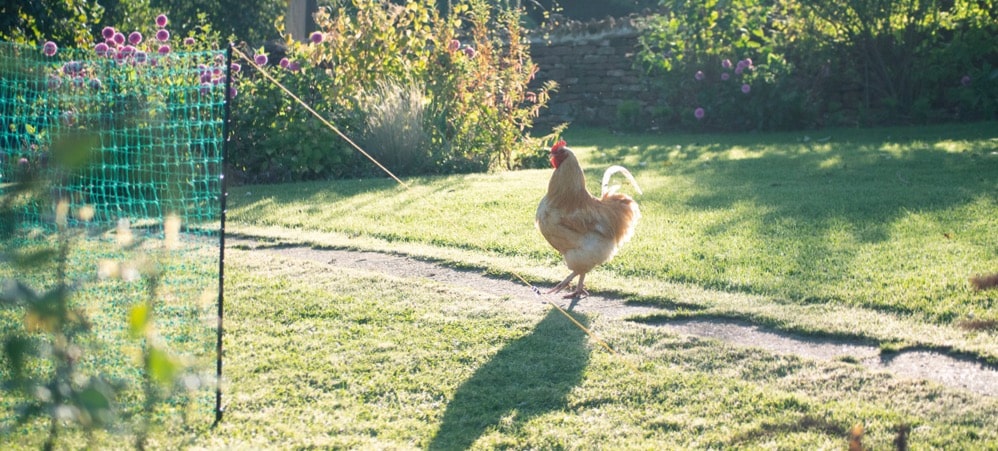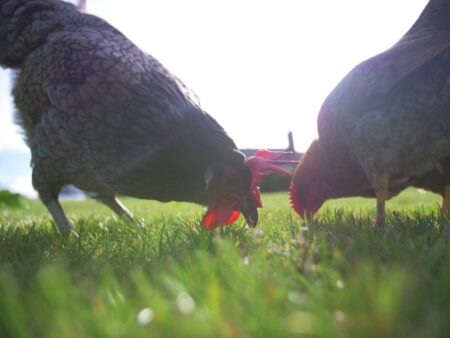How To Turn Your Chickens’ Droppings Into Manure

Omlet chicken fencing can be used to contain your chickens within an area, giving them more space to roam in your garden.
Our chickens provide us with entertainment, company and fresh eggs – and lots and lots of poo! While cleaning out the Eglu might not be the most fun part of chicken keeping, those droppings can be turned into what gardeners sometimes refer to as “black gold”, one of the most desired fertilizers out there – and you can get it for free!
There are however a few things to think about when it comes to getting chicken manure right. Keep reading to find out more!
It can all be used
Unlike some other types of manure, chicken manure is too strong to use straight on your flower beds or vegetable patches. It will burn the roots or other parts of your flowers and crops, and can also contain harmful bacteria that can cause illness if ingested. This is why it needs to be composted!
While you can put the chicken droppings straight on a bed in autumn and cover it with dry leaves that will moult through the winter, your best shot is probably to be patient and let it mature in a separate place.
Whether you do a weekly clean or pick up droppings in your Eglu every day, everything in the coop can be put straight onto your compost, including the bedding. Adding the bedding helps create the correct ratio or carbon (bedding) and nitrogen (droppings) needed to break down plant matter and waste. As chicken droppings are extremely high in nitrogen, you will probably want to add a larger ratio of other plant matter than you would in a normal compost. Dried leaves from the garden will make a great addition.
We recommend having a sealed container for your compost rather than a heap in a corner, as the latter can attract rodents and pets that should not be ingesting chicken poo.
 Composting chicken droppings
Composting chicken droppings
Apart from carbon and nitrogen, your compost will need air, moisture and heat. This is easily done, all you need to do is to water your mixture thoroughly and turn the heap every few weeks to get air flowing through. This will automatically heat the compost, breaking down the plant matter and burning off unwanted bacteria.
If you want to speed up the process and become a composting champion, you can purchase a compost thermometer at a local garden center and keep an eye on the temperature in the middle of the heap. The ideal temperature is 50-65 degrees Celsius (130-150 degrees Fahrenheit), and this should be maintained for about 3 days, after which you will need to turn the matter completely and start over.
This is however not necessary, you can just leave the compost to do its magic, just turning it regularly. How long it will take depends on the conditions, but to be sure everything is properly composted you should leave it for 9 months to a year.
Adding black gold to your garden
Once composted, chicken manure adds organic matter to your soil and increases the soil’s capacity to hold water, as well as returning nutrients to the soil. It’s also an amazing fertilizer that provides your plants with nitrogen, phosphorus and potassium in much higher levels than other types of manure. Chicken manure can be spread on top of your vegetable patch or flower bed, or worked into existing soil. You can also put a handful of manure in a watering can and let it mix for a while before giving your flowers a very nutritious shower.
If you have composted the manure properly all the harmful bacteria will have been burned, and there is very little risk of you getting ill. However, if you’re on the worried side of things, make sure you clean your veg properly before eating them, or use the chicken manure on crops that are not touching the ground, like sweetcorn, peas or tomatoes.
This entry was posted in Chickens